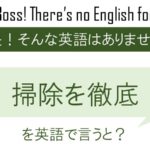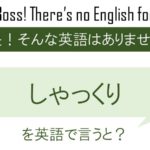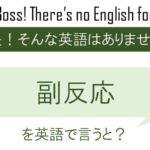
I used to study French and I’m studying Japanese now. Studying a language can be very difficult but there are some things I do which I find make it easier.
The first thing I do when I’m practicing a foreign language is to try and give responses with more than one sentence. The sentences don’t have to be complex or sophisticated but they help me practice talking more. For example, if my teacher asks me a yes/no question like “Do you like movies?” I never give a simple answer like “Yes, I do.” I try to expand, for example I say, “Yes, I do. I sometimes watch movies on Netflix. The last movie I saw was Princess Mononoke. It was exciting.”
The next thing I always try to do is ask a question after I have replied to my teacher. This way I can practice question formation at the same time I’m practicing conversation. Using the example above, after I’ve talked about my last movie I will ask my teacher, “What was the last movie you watched?”
Another thing I always try to do when I learn a new word is to try and use it a few times in conversation. For example, during a listening activity I heard a new word, the Japanese word for “decorate”, “飾る”. After the listening activity I asked my teacher how he decorates his room and I told him how I decorate mine. In the next lesson I tried to find a way to use the word so that I would remember it.
On a similar note, before I have a conversation lesson I usually try to think of some small talk topic I can chat about at the beginning of the class. It does not have to be a big or important topic, it just has to be something that will allow me to practice conversation. Often, it is about TV shows I’ve watched recently, books I’m reading, or current events. If the topic is difficult I will look up new words in the dictionary before the lesson so I can have the conversation with my teacher.
When I learn a word that needs to be conjugated such as verbs or Japanese adjectives, I usually try to practice using the new word in several different ways. For example, if I have just learned the word “飾る” I might try to make a sentence with the negative form (飾らない) or a potential form (飾られる). This allows me to get used to using the word in many different ways.
The final advice I would give to anyone learning a language is to relax and not worry too much about what you are saying. You don’t have to worry about if what you are saying is brilliant or perfect. I’m never going to be the next Haruki Murakami, my Japanese is never going to be that good. So I just try to relax and slowly get better.
There is a great French idiom which I think works well for people learning new languages,“Petit a petit, l'oiseau fait son nid”, which can be translated as “little by little the bird makes its nest.” It means don’t worry about going quickly; take your time and you will eventually meet your goals.
Nathaniel
Vocabulary
complex (adj.) – involving a lot of different but connected parts in a way that is difficult to understand
sophisticated (adj.) – intelligent and complex
current events (n) – important political or social events that are happening in the world at the present time
conjugate (v) – to add different endings to a verb in order to produce all its different forms
potential form (n) – the form of a Japanese verb that expresses ability (i.e. I can OO.)
nest (n) – a home built by birds for their eggs and by some other creatures to live in
英語学習をフルサポート!
マンツーマン&コーチングの英会話教室
























